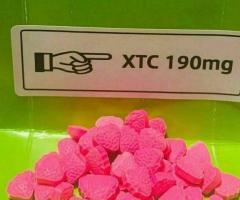Ecstacy or MDMA (Methylenedioxymethamphetamine) is a synthetic psychoactive drug known for its stimulant and euphoric effects. It was first synthesized in 1912 by the German pharmaceutical company Merck, but it wasn't until the 1970s that it gained popularity as a recreational drug.
Since then, MDMA has been known by various names such as "Adam", "Molly", or simply "E" and has been used in different settings, including clubs, parties, and music festivals.
MDMA primarily affects the brain by increasing the levels of neurotransmitters serotonin, dopamine, and norepinephrine. These chemicals play a vital role in regulating our mood, emotions, energy levels, and social behavior. The increased release of these ne...
Ecstacy or MDMA (Methylenedioxymethamphetamine) is a synthetic psychoactive drug known for its stimulant and euphoric effects. It was first synthesized in 1912 by the German pharmaceutical company Merck, but it wasn't until the 1970s that it gained popularity as a recreational drug.
Since then, MDMA has been known by various names such as "Adam", "Molly", or simply "E" and has been used in different settings, including clubs, parties, and music festivals.
MDMA primarily affects the brain by increasing the levels of neurotransmitters serotonin, dopamine, and norepinephrine. These chemicals play a vital role in regulating our mood, emotions, energy levels, and social behavior. The increased release of these neurotransmitters leads to feelings of pleasure, empathy, and heightened sensations.
MDMA has been used for a variety of purposes, including therapeutic and medicinal uses. In the 1980s, it was studied as a potential treatment for various mental health conditions such as anxiety and post-traumatic stress disorder (PTSD). However, due to its high potential for abuse and addiction, it was classified as a Schedule I drug in the United States in 1985.
It is often consumed in the form of tablets or capsules and can also be snorted or injected. The effects of MDMA typically last for 3-6 hours, with peak effects occurring within the first hour after ingestion.
One of the main reasons for MDMA's popularity is its ability to induce feelings of euphoria and emotional openness. This has led to its use in therapeutic settings, where it is believed to help individuals connect with their emotions and past traumas in a more profound way. However, there have been concerns about the potential long-term effects of MDMA on brain function and mental health.
Contact: +1(209) 782-3527
Telegram name: https://t.me/AliBalkan1
Telegram group: https://t.me/HTXTACTICALshop
Email: caroline54g567@gmail.com



